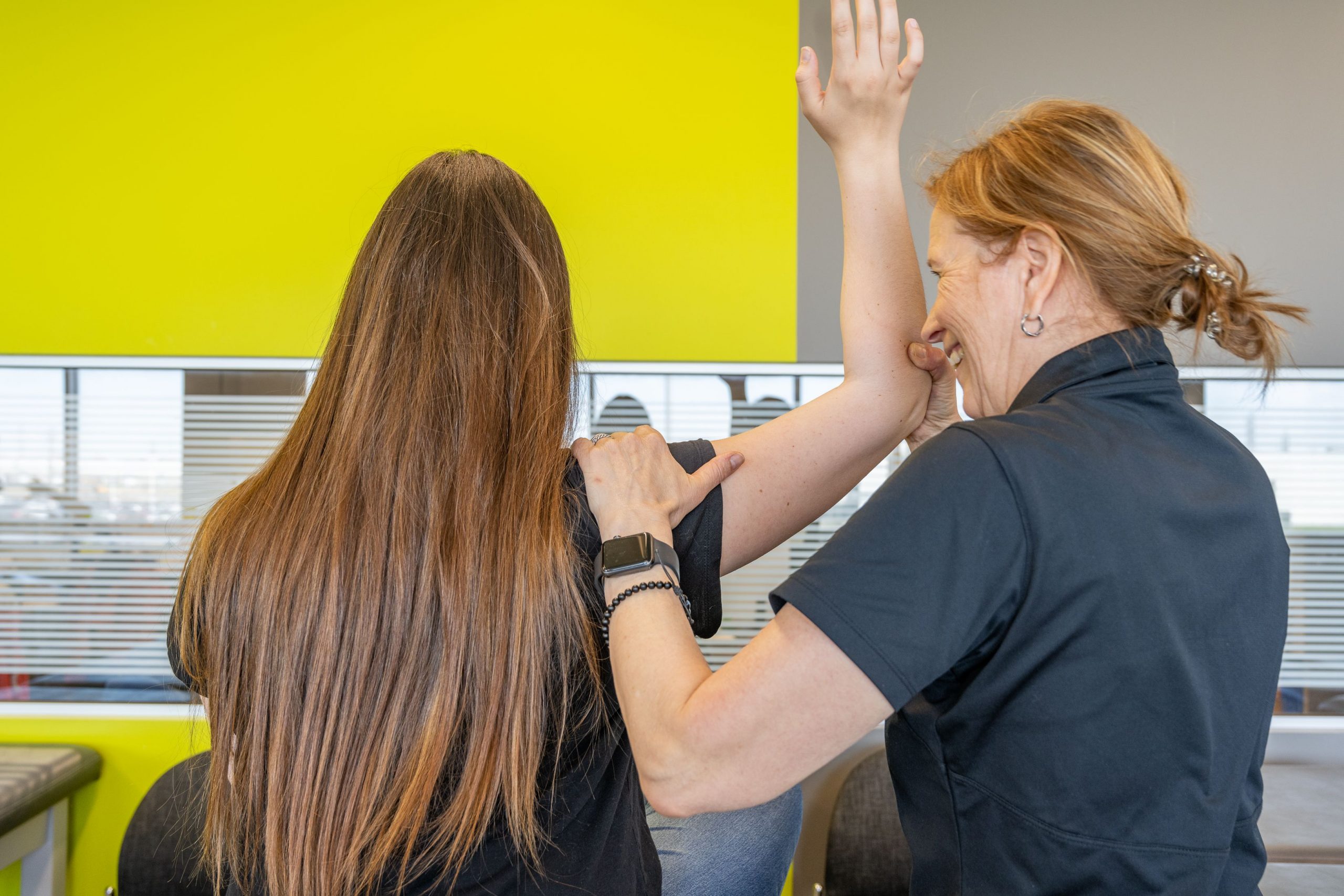Physiotherapy
Physiotherapy is a first-line action in preventing, evaluating and treating musculoskeletal injuries such as bursitis, tendinitis, muscle tears, herniated discs, postoperative conditions, etc.

Physiotherapy is a first-line action in preventing, evaluating and treating musculoskeletal injuries such as bursitis, tendinitis, muscle tears, herniated discs, postoperative conditions, etc.


Many treatment approaches are used as needed, including manual therapy, exercise plan, hydrotherapy, electrotherapy, cryotherapy, etc. The CMSL’s state-of-the-art facilities and equipment feature one of the most diverse and competent physiotherapist team in Québec.
Sports physiotherapy
A specialized approach to prevent and heal sports-related injuries, reduce pain, increase strength and flexibility, improve endurance and optimize amateur or professional athletic performance.
Many conditions can be treated in pediatric physiotherapy:
When should you consult?
As soon as you are worried about your child’s development (frequent twitching, lack of tone, swelling, inability to crawl or sit at 8 months, stand at 12 months, walk at 16 months, frequent falls, etc.).
The faster it is treated, the more effective the therapy and the risk of sequelae will be reduced. The duration of a session varies between 1 and 2 hours (evaluation 1 hour, treatment 30 to 60 minutes).
Effort retraining
This service aims to improve your strength and cardiorespiratory capacity, and reduce the risk of recurrence of musculoskeletal problems using a personalized physical exercise program adapted to your condition. The program and follow-ups are conducted by our specialized physical rehabilitation therapists and practiced in our facilities, as well as at your home.
Sub-dermal needle
Physiotherapeutic needle puncture with a dry needle (UASD) releases muscle tension points, reduces inflammation and alleviates pain by reprogramming the nervous system. This approach complements physiotherapy treatments and promotes the healing process. It may be recommended in treating disorders such as headache, low back pain, tendonitis, back pain, etc.
Vestibular physiotherapy
Vestibular rehabilitation is used to assess and treat vertigo, dizziness and balance disorders. Because dizziness is often caused by involuntary eye movement, the assessment is performed using a videonystagmograph, a mask fitted with an infrared camera that allows the eyes to be seen in total darkness. Treatments include mobilizations and exercises to alleviate the cause of the symptoms.
Aquatherapy
Physiotherapy in a swimming pool helps with mobility exercises, postural rehabilitation or postoperative recovery by reducing pain and stress on the joints. This approach is often used for treating various orthopedic conditions such as fibromyalgia, osteoarthritis, arthritis, fractures, herniated discs, etc.
Biodex evaluation
The Biodex is an isokinetic device used to assess strength, power and muscular endurance with extreme precision. It’s also used to strengthen muscles that have been weakened by injury or surgery. Biodex evaluation makes it possible to follow the evolution of your physical condition while optimizing your muscular rehabilitation, detecting muscular deficits and determining if you are ready to return to sport or physical work.
Knee Kinesiography (KneeKG)
Performed as part of a musculoskeletal assessment, knee kinesiography allows you to better understand the causes of pain and the symptoms you may experience following an injury, surgery, femoro-patellar syndrome or other biomechanical problem in the knee. This analysis helps to reduce pain, increase the daily life quality and avoid or delay taking medication or resorting to surgery. To learn more about knee kinesiography, download this informative document.
Contact this department at 450 688-0445, ext. 4
Make an appointment. We’d love to take care of you!
© Copyright 2025 Centre de Médecine Sportive de Laval. All rights reserved.